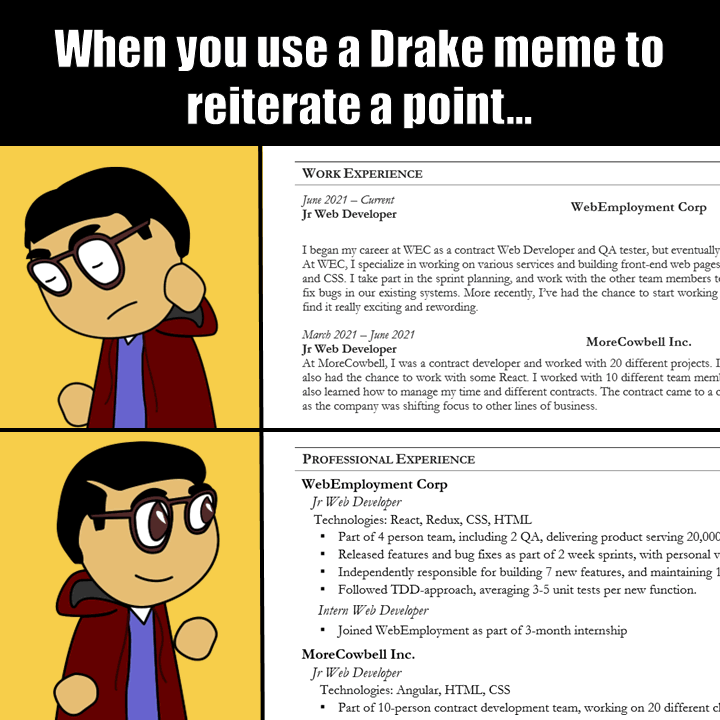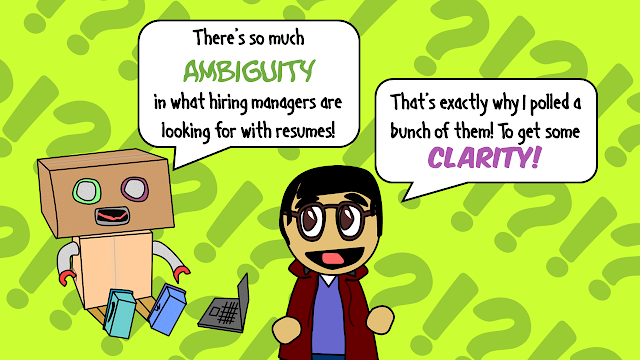4 Mistakes We Make About Culture
I wrote this a few years back, before the height of the tech-hiring frenzy. For some reason, I never published it - not sure why. After reviewing it against the current backdrop, I think it's somehow more relevant today.
Companies & teams want a great culture but I'm seeing trends in what they often get wrong. Here's my list of 4 things along with what leadership can do about it, based on things I'd implemented with my own teams.
- Policy ≠ Culture
Staying late until the problem is solved, constructive disagreements, being accountable to own another, team lunches, unlimited PTO - those aren't culture things. Those are policies. I read blogs or hear people talk about their culture in these terms - and it's misguided.
Take the first one - staying late. Setting aside whether it's good policy or not, it can only work as a policy, not culture. As a policy, it sets an expectation. It avoids a trap of employees having to figure out what the "right thing to do" is. It also means, the leadership team is accountable to the policy. If people are regularly staying late - it's understandable that morale will go down. As a policy, leadership is accountable. If it's portrayed as the team's "culture" - to go above and beyond, then there's no accountability. When you talk about culture in these terms you create ambiguity around your expectations. As a manager you should measure people against transparent expectations - and those are your policies. To measure people against ambiguous uncommunicated expectations in the name of 'culture' will result in a toxic culture you want to avoid.
- Leadership Defines Culture
Culture is something organic. It can't be forced with a document. You can't predefine it. Try as you might, if the team members don't buy-in, it's not going to happen.
Culture is how the individuals who make up the team come together to deliver. It's organic because it adapts and changes over time, just like any organism. If its fixed, static, then it withers away. Culture materializes through its makeup, evolves through collaboration, iteration, sharing. It's strengthened through the bonds, and the shared challenges.
While you can't predefine culture, you can foster an environment that encourages the right kind of culture - through your hiring practices, how you communicate, transparency, and by modeling and living up to your own expectations. Modeling these behaviors won't guarantee anything, however. You need to provide the safety-nets to foster a tolerance for taking risks and to earn the prerequisite trust needed for a positive culture. - Don't Hire Outside the Culture
I hear people talk about how someone wasn't "a cultural fit" and so they don't hire someone because of it. That's poor way of hiring, and a very slippery slope. It limits the evolution of the culture by choking out growth. A sterile environment doesn't lead to healthier organisms. It requires challenges, opportunities, and introducing new thoughts and ideas.
Hiring for a culture fit ends up being dangerously exclusionary. Decisions should start on skillset, talent, aptitude for growth and the team's needs. You should also hire with consideration of your policies & expectations - if you require evening work, that means being up front about the policies (it's also a good idea to reevaluate bad policies to ensure you're not limiting your talent pool.) Then, finally, you should look to whether the candidate can influence the culture in new and positive ways - not just hire for 'fit'. Like Groucho Marx said: I'd never join a club that would have a guy like me for a member.
- Culture = Success
“Culture eats strategy for breakfast” gets said a lot. It's not a bad sentiment but culture isn't going to make you successful, not on its own. Culture builds cohesion, and that cohesion helps you deliver better, helps you weather storms, and helps you enjoy the process - but culture without strategy is just a group of people hanging out. Great culture may keep people - but only to a certain point. Culture makes us feel valued, but Results make us feel valuable, impactful, and gratified. I've seen people leave places that had great cultures, because they didn't feel progress - in their projects, in their contribution, in their growth. And if they felt progress, that sense of progress wilted if progress never got to completion.
I've been part of teams that delivered incredible results - in one particular case, we started with almost no culture, a team of individuals. But as we delivered result after result, and our reputation grew, and our culture materialized in those results. As our team grew, some of our culture became matters of policy (i.e. the practices for writing & releasing code that we'd informally adopted), but the culture itself evolved to reflect our evolution from team of individuals to team of collaborators and supporters.
As leaders, I think that means shifting focus from creating culture to charting out a clear path to success, removing obstacles, and then creating the space for culture to form itself. That means laying out strategy for delivery, but it also being diligent about the investment and social contract you form with your team members. Tapping into their individual goals, supporting their growth, and crediting them with success.





